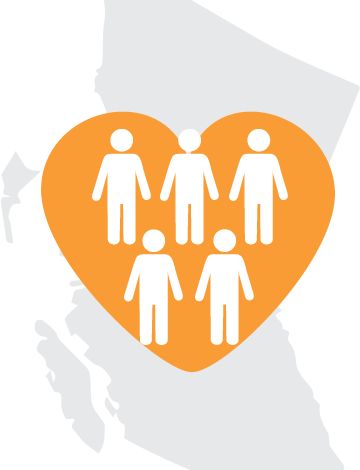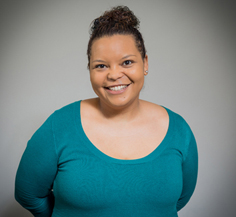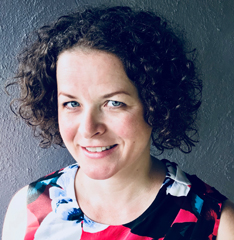2018 has been a pivotal year for Pain BC. It has marked a decade since a small group of visionaries incorporated Pain BC as a non-profit society. Within this decade, Pain BC has grown from an idea to an international leader in advancing pain as a priority. Our network has grown from a few dozen to hundreds of volunteers, donors, and partners. We have built impactful programs, changed lives, and brought pain out of the shadows. Is there more to do? Absolutely, but 2018 has undoubtedly been a critical turning point for our work.
Over the course of this year, we successfully launched two major support programs for people living with pain. The process of development has proven to be critical: forming partnerships for implementation, working with our advisory committees to ensure programs are relevant, and evaluating pilots rigorously to refine them over time. These efforts have helped to ensure more practical support, compassionate care and much needed hope is provided to people living with pain.
This year also marked the launch of three new programs to equip health care providers with knowledge and tools to provide improved pain care in their practice. While education is one of our priorities, it is also a foundation on which to build. The health care providers we have trained have become advocates in their local communities and mobilizers in their professions.
Beyond the development of these much-needed programs, 2018 was also the tipping point in getting pain on the agenda. Here in BC, numerous reports acknowledged untreated pain as a key contributor in the overdose crisis. Efforts to create a provincial pain strategy continued. Media coverage on pain increased 80% over the previous year, and for the first time, advocates were able to get pain on the federal government’s radar.
So, what will 2019 bring? Neither of us has a crystal ball, but we are confident that we will continue to make a real and practical difference. We plan to continue exploring emerging needs, with emphasis on people who live with pain and experience marginalization. We are certain that our network will stand with us, and together, we will continue to improve the lives of people living with pain in BC and beyond.
Maria Hudspith, Pain BC Executive Director
Finlay Sinclair, Pain BC Board Chair
Empowerment
This year marked the launch of two Pain BC support programs: The Pain Support Line and Coaching for Health. Both programs are highly adaptable in order to meet the needs of each individual person with pain, and are offered free of charge to people in BC.
“I felt like I was out of ideas until these coaching sessions started. I wasn’t getting anywhere with physio or counseling. Now I feel much more in control and positive, and I’m finding new ways to get active, despite the pain.”
“I’m glad I made the call. It was very helpful to know that others have a true understanding of what chronic pain is and how it affects all aspects of your life.”
“If you’re living with pain and you’re tired of living with pain alone, this program is for you. Coaching for Health has helped me overcome a lot of the challenges I had with my sense of self-worth, my confidence and my ability to even prioritize what’s important. This program has helped me far beyond words can even describe.”
![]()
The Pain Support Line program is based on an earlier program known as Connect for Health. Now expanded and improved to offer support for self-management and a safe space to talk about pain and its impact on the client’s life, the Pain Support Line offers connection to community resources, help navigating the health system, and information about Pain BC’s services and resources. The Pain Support Line is staffed by highly trained volunteers weekdays from 9 am to 4 pm, excluding statutory holidays.
![]()
Coaching for Health is a free telephone coaching program designed to help people living with pain learn self-management skills, regain function and improve their well-being. It has been shown to improve confidence and help people with pain become more active participants in their own health. The program is accessed through a referral from any licensed medical professional, including primary care providers, physiotherapists, clinical counsellors, and more. Coaches call clients once a week for up to 12 weeks to support and mentor clients to meet their health goals and make meaningful changes in their lives.

representing organizational partnerships
served in 2018
Education
Building educational capacity among health care providers
Education is central to Pain BC’s mission. We know that some of the most impactful change can come from shifting attitudes, building skills and empowering health care providers to provide better care to people with pain. In 2018, Pain BC was hard at work developing core components of our laddered strategy for building chronic pain capacity among health care providers in in BC. We spent much of the year developing Pain Foundations, a free, online, self-paced course designed to deliver foundational knowledge in the biopsychosocial approach to assessing and treating chronic pain to all health care providers, regardless of discipline.
The second tier of our strategy is already well-established and focuses on providing discipline specific training for health care providers through clinical workshops for allied health providers and other discipline-specific continuing education opportunities. We also collaborated with the Doctors of BC’s Practice Support Program (PSP) and UBC Continuing Professional Development to develop new chronic pain learning modules for primary care physicians.
This year, we also laid the groundwork for the third tier of our strategy: the BC ECHO for Chronic Pain. Once launched in spring 2019, this free virtual learning community will meet monthly by videoconference to provide ongoing support and mentorship to health care providers across the province. Through participating in our ECHO, health care providers will get the help and support they need to provide immediate care to patients with complex pain, particularly in underserved areas, such as rural and remote communities. Funding for the BC ECHO for Chronic Pain is provided by the Shared Care Committee, one of the Joint Collaborative Committees of Doctors of BC and the BC Government.
Laddered strategy
Building chronic pain capacity among health care providers in BC
Pain Foundations
Improve baseline knowledge for all health care providers
Ongoing education
-
Monthly webinars for our network of nearly 1000 health care providers
-
Database of continuing education opportunities
-
Training for health care providers on Pain BC patient programs – Gentle Movement & Making Sense of Pain Training
-
Free educational resources for providers and patients (print and digital)
Laddered strategy
Building chronic pain capacity among health care providers in BC
Practice Support Program pain module for GPs
Clinical education for allied health providers
Ongoing education
-
Monthly webinars for our network of nearly 1000 health care providers
-
Database of continuing education opportunities
-
Training for health care providers on Pain BC patient programs – Gentle Movement & Making Sense of Pain Training
-
Free educational resources for providers and patients (print and digital)
Laddered strategy
Building chronic pain capacity among health care providers in BC
BC ECHO for Chronic Pain
Sustained mentorship using hub and spoke model
Ongoing education
-
Monthly webinars for our network of nearly 1000 health care providers
-
Database of continuing education opportunities
-
Training for health care providers on Pain BC patient programs – Gentle Movement & Making Sense of Pain Training
-
Free educational resources for providers and patients (print and digital)
“For a manual therapist providing care for chronic pain patients, Dr. Assimakopoulos’ course on chronic pain was thoroughly informative and provided a wealth of information that could be directly applied to practice. The evidence and knowledge provided is something any treating provider can take into practice. Dr. Assimakopoulos is changing the way we look at and manage chronic pain.”
“If there is one course that every RMT needs to take, it is your Pain BC course. It completely changed how I think about chronic pain and has given me some tools to be more effective at treating it.”
“Eric teaches with humour and good grace without a hint of arrogance or egotism. He speaks passionately and confidently on a topic he is obviously quite knowledgeable about. The [RMT] course focuses on how we think and encourages us to ask some big questions. If you’re ready for a paradigm shift, this course will be the first step in that direction.”
Education for people in pain
![]()
Pain BC’s Live Plan Be website is a free online self-management tool providing people in pain and caregivers with resources to help manage pain and well-being. The website includes articles and self-assessments that can help people with pain track their health and learn more about pain management, with topics ranging from pain science, relationships, sleep, paced activity, and much more.
The website also hosts an anonymous discussion forum where people in pain and caregivers can ask questions and connect with others. Within the forum, we host a series called Ask the Expert, which provides opportunities for people to chat live with experts on specific topics related to pain and pain management including doctors, pharmacists, physiotherapists.
![]()
Pain BC’s Pain Waves podcast provides listeners with opportunities to hear leading chronic pain experts and people in pain discuss the latest pain management research, stories, tools and trends. Our monthly episodes cover a diverse range of relevant topics that meet the evolving needs and interests of our community. In 2018, Pain Waves covered topics including chronic pain and insurance, occupational therapy for pain, cannabis for pain, and sound therapy.
Innovation
Tailoring pain education for people experiencing marginalization
People living with chronic pain often experience challenges that prevent access to care, including long wait lists and fees associated with many privatized services. For people in pain who also live with substance use and mental illness, there are even more barriers to getting help. We know untreated or undertreated pain can be one of the root causes of illicit drug use.
In the fall of 2018, Pain BC launched the Making Sense of Pain pilot program designed to help people living in marginalized conditions live better with pain despite their challenging circumstances. The pilot project was held in the Downtown Eastside of Vancouver and consisted of 7 weekly group sessions. The focus of this class series was to cover common topics taught in most pain self-management courses in a safe environment that was welcoming to all and drew on the strengths and lived experience of participants.
In order to minimize potential barriers to accessing the program, the pilot program provided subsidized transportation, a meal, and allowed for program participants to attend on a drop-in basis. Recognizing many people attending the classes have experienced significant trauma at some point in their lives, the facilitator aimed to conduct each class in a way that prioritized participant safety and increased their understanding about how trauma and pain can be related.
Throughout this pilot, we learned a lot about successfully delivering programs that address the needs of people who are marginalized. Participants were comfortable letting us know what worked well for them, what didn’t, and what they wanted to learn more about.
Funding for the Indigenous pilot was provided by the Overdose Emergency Response Centre.
In 2019, the program will run with funding from Vancouver Coastal Health at three locations in the Downtown Eastside and at four other locations around BC, thanks to funding from the Vancouver Foundation. Pain BC continues to be involved with the DTES team and is focused on:
- Continuously improving the quality of curriculum and instructional resources based on participant and facilitator feedback
- Creating facilitator and peer training resources to facilitate the spread of the program throughout the province
- Establishing partnerships with sites interesting in hosting the program across the province
- Collaborating with Indigenous health organizations to create a similar program that is culturally safe and relevant for Indigenous communities throughout BC. On this point, we are working with an Indigenous health curriculum developer and evaluators to decolonize the program content and plan to deliver it at three sites throughout BC by the end of 2019.
BC Pain Research Network
Supporting pain research in BC
In early 2018, Pain BC and UBC partnered to launch the BC Pain Research Network, which brings together researchers from across the province to connect and collaborate with the aim of improving the lives of the one-in-five British Columbians living with pain.
“Research is a priority for Pain BC. In developing this Network, Pain BC will play a critical role in bringing together people in pain, health care providers, and policy makers with researchers to make a concrete difference in the lives of people in pain.”
MARIA HUDSPITH
Executive Director, Pain BC
The network is a catalyst for new pain research by hosting a series of educational and networking events, creating interdisciplinary research teams, and supporting researchers to successfully compete for larger grants. The network comprises more than 100 investigators from a range of disciplines, including molecular biology, pharmaceutical sciences, clinical investigations, behavioural and social sciences, humanities, public health and health services delivery.
This network grows out of a partnership between Pain BC and the University of British Columbia. The initial funding to develop the network was provided through support from UBC’s Research Excellence Clusters initiative and a Planning and Dissemination Grant from the Canadian Institutes of Health Research.
Find out more at www.bcpainresearch.ca.
111 Members
BC Pain Research Network members
20+ Institutions
Represented by network members
109 Publications
from network members in 2018
Working Groups
Pain BC held the Provincial Pain Summit in 2017 to identify goals and brainstorm action items aimed at transforming care and reducing stigma for the one in five British Columbians living with chronic pain.
Throughout 2018, we’ve built on the momentum from the Summit and convened several working groups comprised of more than 120 individuals who represent many health care organizations, clinical experts, policy makers and people living with pain. Members of each working group work together to determine, implement, and advocate for efforts that contribute to building a better system of care. Collectively, these groups have been advancing strategic priorities, including our goal of a provincial strategy for chronic pain.
Allied Health and Nursing in Multidisciplinary Teams Working Group
The goal this working group is to improve access to allied health (physiotherapy, occupational therapy, chiropractic etc.) and nursing services for people living with pain. This group has created a tool to support physicians in making referrals to allied health professionals and is advocating for the integration of allied health services on multidisciplinary teams in primary health care.
Opioid Disentanglement and Stewardship Working Group
This working group aims to improve assessment for pharmacological pain treatment, balance harms and benefits of medications and advance appropriate pain management for patients across the continuum of care. This group initiated a Pain and Overdose Dialogue to examine the role of pain in the overdose crisis, and has advocated provincially and nationally for improved pharmacological pain treatments.
Self-Management Working Group
Self-management is the gold standard for management of chronic pain and yet we hear from both health providers and people in pain that they don’t know where to find self-management resources. Addressing this issue, the Self-Management Working Group developed a directory of self-management resources and programs in BC.
Primary Care Education Working Group
Primary care providers are the front line in the assessment and management of chronic pain in our communities. The goal of this group is to increase the capacity of primary health care providers to deliver evidence-based pain assessment and management, including non-pharmacological approaches to people living with pain. The group is creating physician education programs, such as the BC ECHO for Chronic Pain, and exploring ways to increase access to specialist consultations to support primary care providers.
The Prevention and Early Intervention Working Group
One of the main goals in pain medicine is to prevent the loss of function and development of co-morbidities (e.g., depression, anxiety) that often accompany chronic pain. Early intervention is key in this process. Working alongside the Sea to Sky Division of Family Practice, this group is initiating a pilot project to prevent the transition of acute to chronic pain by providing coaching, education and community resource connection while identifying risk factors in people recovering from acute fracture injuries.
Research Working Group
This group initiated the BC Pain Research Network, which has brought together more than 100 researchers from BC to collaborate on pain research and bring new knowledge into practice and policy.
Trauma and Violence Informed Care Working Group
Trauma and violence informed care seeks to create safe health care environments based on an understanding that trauma and violence impact physical and mental health. One of this group’s initiatives is piloting Making Sense of Chronic Pain, a self-management class series designed for people with pain who also experience problematic substance use, poverty, mental illness or other barriers to care.
Pain and Overdose Dialogue
On November 22, 2018, Pain BC hosted a Pain and Overdose Dialogue in Vancouver. The event brought together people working in research, policy and direct care in both the pain and substance use fields, as well as people with lived experience of both pain and substance use. The event was structured with two components: an inquiry interview of an interdisciplinary panel of experts and people with lived experience, followed by structured table discussions.
“Collaboration is essential to addressing this crisis.”
DR. PATRICIA DALY
Chief Medical Health Officer, Vancouver Coastal Health
at the Pain and Overdose Dialogue
The main issue, which surfaced repeatedly, was identified as the compartmentalization of pain and substance use as distinct and unrelated issues when they are, in fact, deeply enmeshed; evidence shows that more than half of people who have died from overdose since 2016 had sought treatment for physical pain in the year previous to their deaths.
Other significant issues included stigmatization of both pain and substance use, a flawed drug policy framework, and the way the health system is designed to be specialty-centric, rather than treating the patient as a whole human who needs appropriate care driven by research and evidence.
This dialogue was an initiative of the Opioid Disengagement and Stewardship Working Group. Pain BC acknowledges, with gratitude, its partner organizations for this dialogue: The BC Centre on Substance Use, the BC Centre for Disease Control, the Canadian Drug Policy Coalition, the Ministry of Health, the Ministry of Mental Health and Addictions, the Michael Smith Foundation for Health Research, and the Overdose Emergency Response Centre.
Towards a Provincial Pain Strategy
In 2018, Pain BC supported the development of a provincial pain strategy in collaboration with the Ministry of Health. The effort brought our considerable depth and breadth of partnerships, as well as our expertise in convening, facilitation and project management, to bear on the process. We hope to see the strategy move into implementation in 2019 and beyond.

Initiating
Engaging partners
Recruiting partners from relevant organizations, as well as people with lived experience, clinicians and researchers
Motivating and inspiring engagement from 120+ participants during development of the strategy
Securing buy-in and in-kind contributions from partner organizations
Convening
Convening, managing logistics for large numbers of participants in various structures
Facilitation and support of groups and individuals
Coordinating planned activities
Provide project management support
Track activities, milestones, outcomes
Execute evaluation and course correction as needed
Aligning efforts
With support from Pain BC’s other portfolios
Harness Pain BC efforts funded by Ministry of Health and other donors/supporters
Guide working groups with best practices and new research
Keep working groups informed of efforts underway nationally, in other provinces, and jurisdictions
Support alignment of activities for greater impact
Board of Directors
Board Executive

Finlay Sinclair
Board Chair, MCIP, RPP, Emergence Developments

Dr Karen Wanger
Board Vice-Chair, GP, Sea to Sky Corridor

Sara Maseko
Board Treasurer, CPA

Joanne Archer
Board Secretary, RN, BTech, MA, CIC
Members at Large

Dr. Aaron Macinnes
Pain Management Specialist & Anesthesiologist, Fraser Health

Wesley Buch
R. Psych, Behavioural Health Care

Sarah Sandusky
Consultant and Facilitator

Dr. Phillipa Carrie
Chiropractor, Cedar Coast Chiropractic

Kataneh Sherkat, MBA CPCC
Director, Executive Search, Peeples Inc.

Glenn Dorey, MBA
President, Westwind Leadership
Financial summary
Revenue
2018 |
2017 |
|
|---|---|---|
| Fundraising | 1,163,708 | 78,192 |
| Programs & events | 73,420 | 64,531 |
| Interest | 15,385 | 2,577 |
| Membership | 5,455 | 2,970 |
Expenditures
2018 |
2017 |
|
|---|---|---|
| Patient education & support | 241,340 | 217,889 |
| Prevention & early intervention | 2,928 | 4,938 |
| Provider education & Support | 185,152 | 159,410 |
| Community engagement | 30,557 | 137,125 |
| Research promotion | 18,545 | 23,211 |
| Health systems redesign | 11,280 | 117,185 |
| Communications | 134,065 | 115,770 |
| Provincial pain summit initiatives | 224,297 | 116,420 |
| Governance & administration | 343,378 | 141,035 |
Pain BC programs are funded by a number of sources, including individual donations, grants from the Ministry of Health, contributions from corporate and philanthropic partners and revenue from our own educational programs.
Donors
Ada Glustein
Adrienne Neill
Alison Izat
Alison Smith
Allison Hurst
Ana Howarth
Anita Meldrum
Aniz Khalfan
Anne Ross and Brian Ross
Anne Shaw
Barbara Bentley
Barbara D. Power
Barbara Robertson
Betty A. Kalvee
Betty Jacobs
Bev J. A. Evanchu
Brenda Poulton
Candace Parliament
Carol Burnstad
Carol Ross
Caroline Fuzi
Catherine Edge
Catherine McFee
Catherine Widdoes
CHANGEpain Clinic
Charlene Schiewe
Cheryl Kinkaid
Cindy Prestie
Clark Konczak
Corrie S. Osborne
Daroux Law Daroux
David Gerrior
David Hay
David Locke
David May
David Purser
Diana Campbell
Dina Nassar
Donna Cole
Doug Ford
Eileen Harding
Finlay Sinclair
Frances MacDougall
Francois Louw
Geoffrey Creighton
Gerard McKenzie
Gillian Lauder
Glenn Dorey
Golnaz Kasaeian
Gregg Moor
Heather Divine
Heather Nagai
Heidi Allam
Isabelle Bordage
J. Randhawa
Jane Goundrey
Janet Joy
Janice Muir
Javed Gill
Jeannette Jorgenson
Jenneke Francke
Jennifer Honey
Jennifer Unruh
Joan Schwann
Joanne Archer
Joanne Meldrum
Johanna Howarth
Joletta Belton
Jose Riga
Julie Boswell
Karen Lines
Karen Wanger
Kataneh Sherkat
Keith Meldrum
Kelly Foster
Ken Craig
Kim Cochrane
Larissa Goruk
Laura Frith
Lee Yong
Leisa Cadotte
Linda Cameron
Linda M. McCune
Lisa Harrison
Louise Harding
Lynda Darling
Lynne E. Young
Malwinder Gill
Maria Janicki
Marian Chalifoux
Martin Roos
May Caprio
May Chan
Michael Negraeff
Michelle Duwyn
Mieke Truijen
Mike Racich
Murat Aydede
Nadia Eddy
Nadine Ann West
Olivia M. Anderson
Owen Williamson
Patricia Gooch
Paul Rothwell
Pauline Martin
Peggy Turner
Philippa Carrie
Phoebe Scotland
Rachel Wilson
Rene Constable
Richard Wagar
Robert de Fleuriot
Robert Marcoux
Rosemary Smith
Ross Soros
Ruth Rogers
Saelley Lai
Sandi Babins
Sandi McGill
Sandra Witherspoon
Sandy Ketler
Sara Maseko
Sarah Hearne
Sarah McEwan
Sarah Sandusky
Sergio Pasqua
Shannon Dickinson
Sharon Farquharson
Shelby Gielen
Shelley van Hallem
Slater Vecchio LLP
Sophie Simard
Stacey A. Cave
Steve Saunders
Susan Lesko
Suzanne Tedrick
Suzy Dinsa
Tamara Rae
Tania Percy
Tanya Alton
Theo De Gagne
Tim Bezeredi
Tony Salterio
Vicki Kendall
Wendy Topping
Wesley Buch
William Chivers
William P. Rothwell
Zhen Tao Lin




Social media
Pain BC’s Facebook and Twitter channels serve as vital online communities for people with pain, caregivers, health care providers, researchers, organizations, and members of the general public. Both channels provide followers with daily updates on the latest pain-related news, resources, events and opportunities. Our Facebook page provides a safe space for people in pain and caregivers to connect with one another, share their lived experiences, and reach out to us directly if they have questions or are in need of support.
Facebook
Twitter